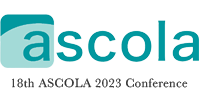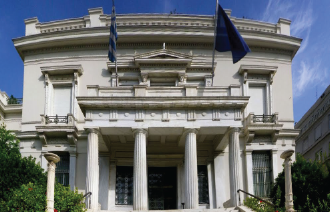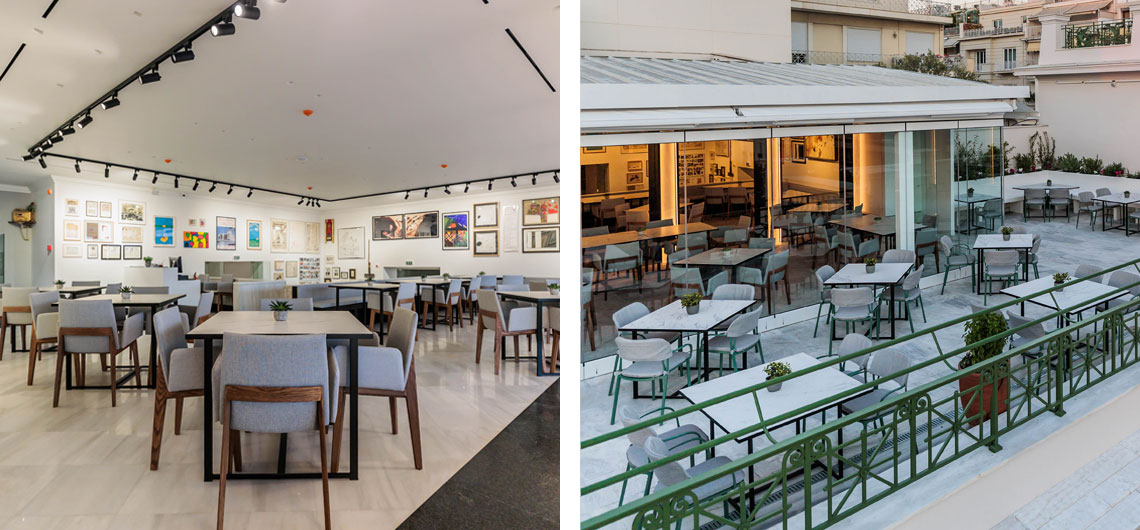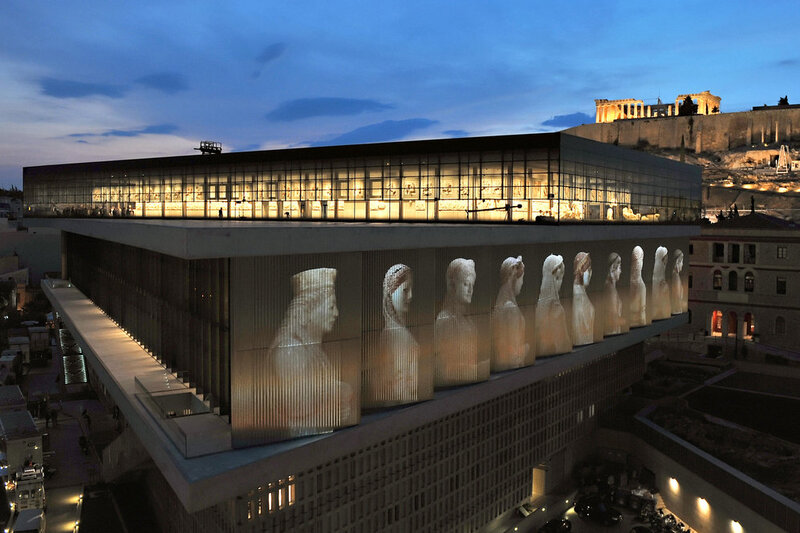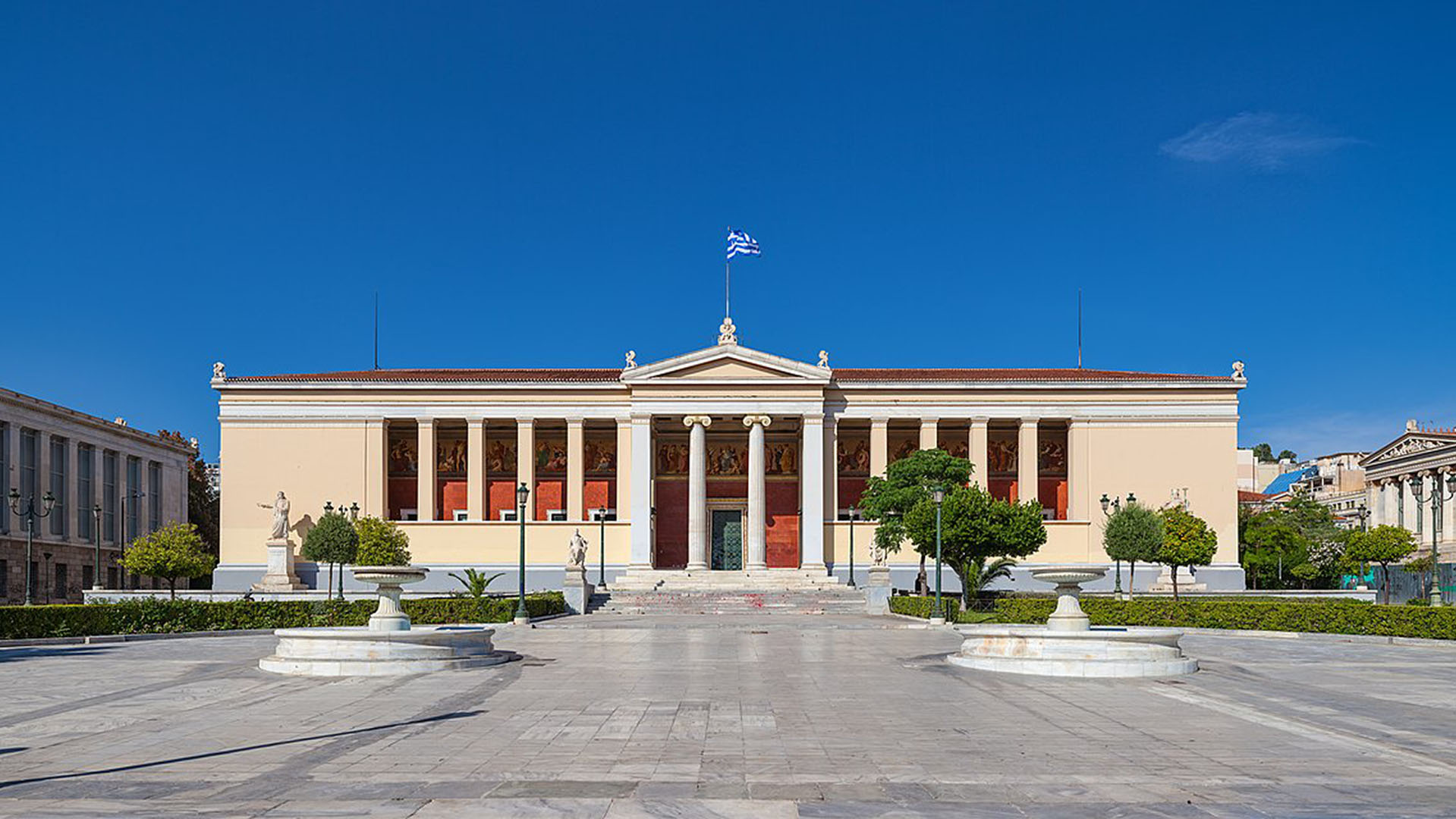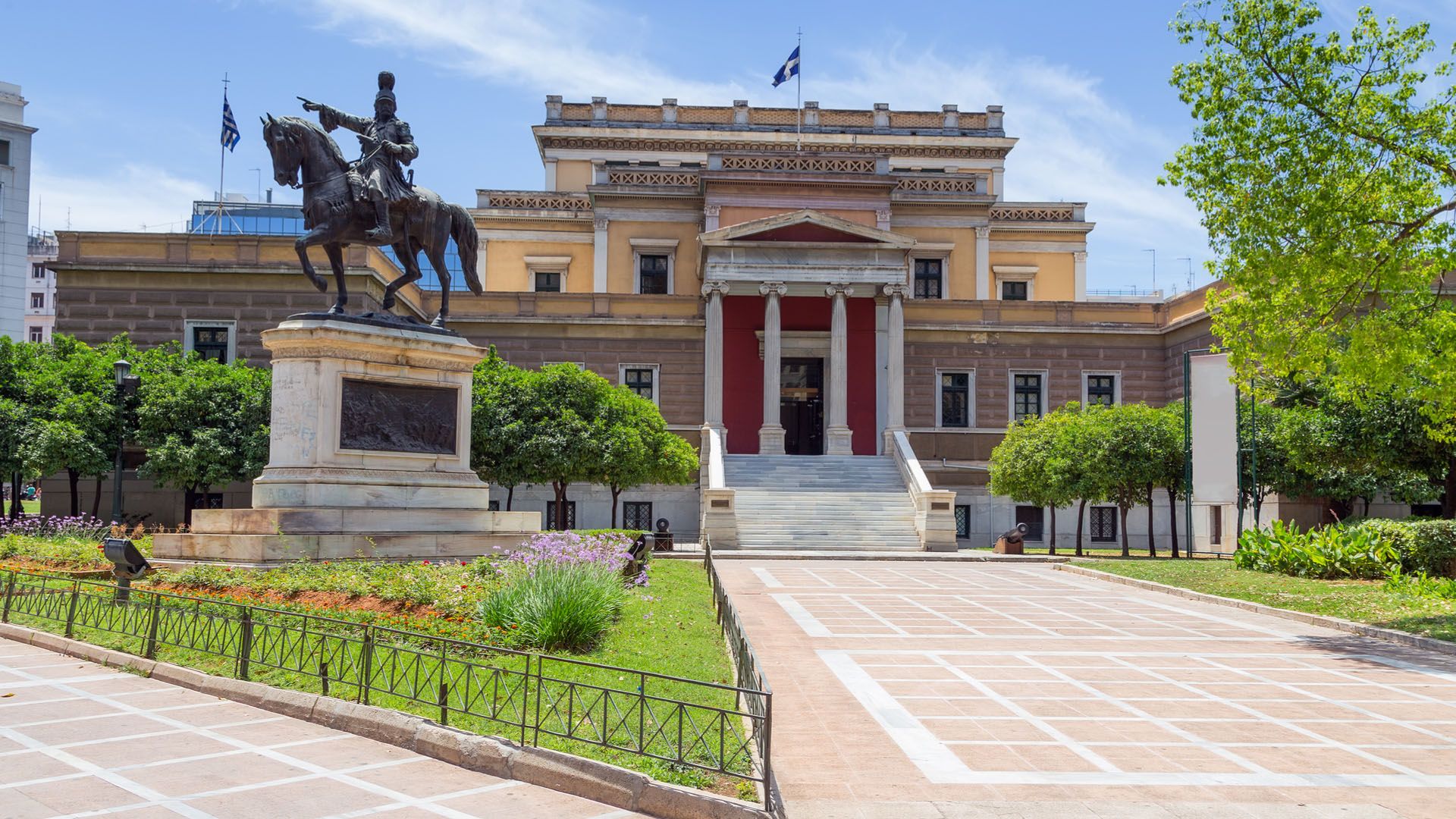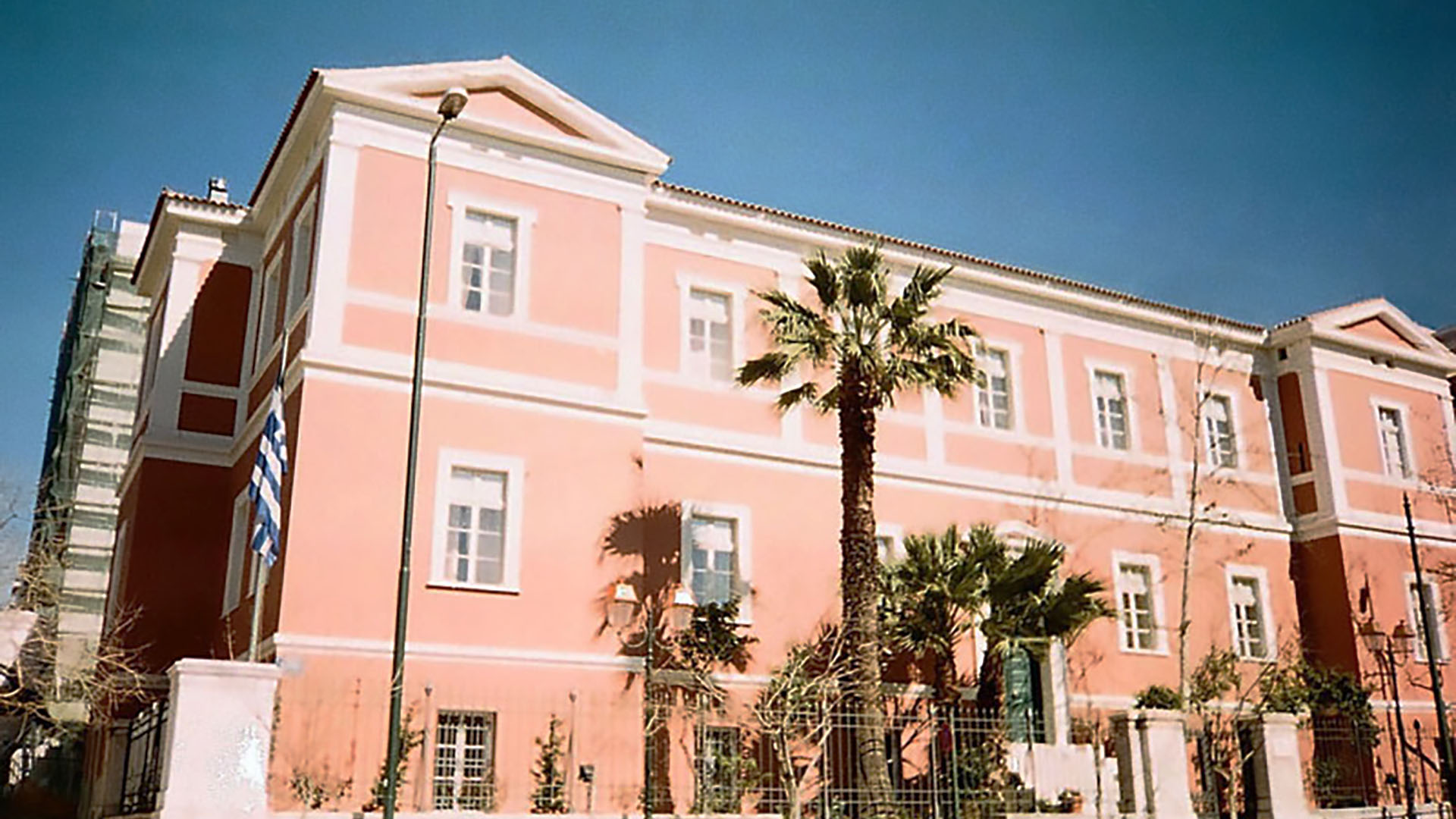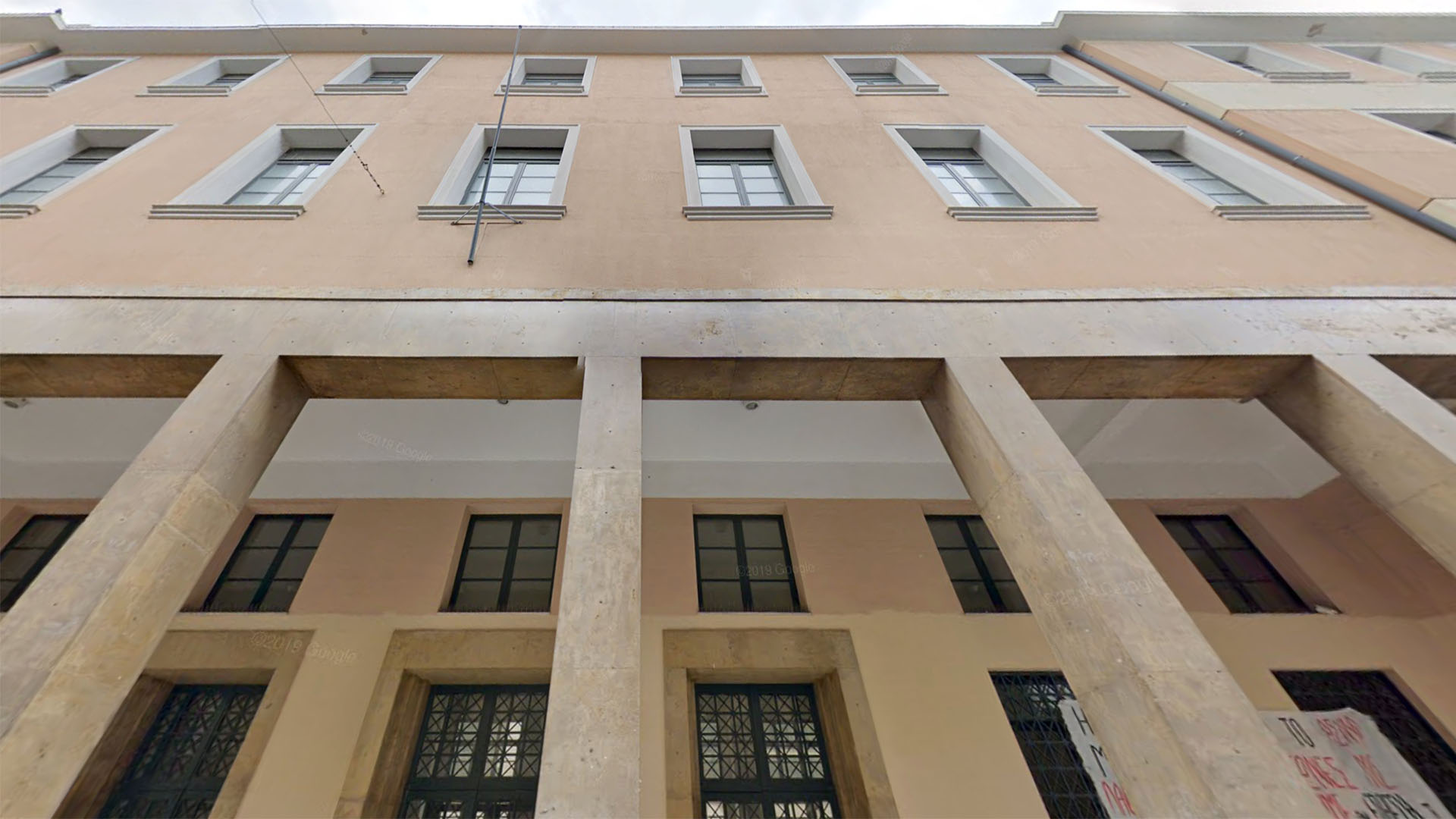ASCOLA 2023 Program
11:00 am - 12:30 pm
ASCOLA Board Meeting, Room 6
(members of the board only).
11:00 am - 12:30 pm
12:00 pm - 1:00 pm
Registration and coffee
1:00 pm - 1:15 pm
Short welcome, Room 1
Michal Gal (ASCOLA Chair, University of Haifa),
Linos Alexandros Sicilianos (Dean University of Athens Law School) and
Alexandra Mikroulea, Emmanouil Mastromanolis (University of Athens Law School)
1:00 pm - 1:15 pm
1:15 pm - 2:30 pm
Plenary Panel I: Economic Challenges for Competition, Room 1
Moderator: Ioannis Lianos (President, Hellenic Competition Commission)
- Olivier Guersent (Director General Competition, EU Commission)
- Tomasso Valetti (Imperial College London, Former Chief Competition Economist)
- Chrysovalantou Milliou (AUEB, Hellenic Competition Commission)
2:30 pm - 2:45 pm
Coffee break
2:30 pm - 2:45 pm
2:45 pm - 4:00 pm
Plenary Panel I: TED Talks, Room 1
Moderator: Rupprecht Podszun (Vice-Chair ASCOLA, Heinrich Heine University)
5:50 pm - 7:20 pm
Breakout Sessions II
7:30 pm - 8:15 pm
Social: Benaki Museum of Greek Culture
Short visit, free of charge, at Benaki Museum of Greek Culture
7:30 pm - 8:15 pm
8:15 pm
Welcome reception
Welcome reception and ASCOLA 20th Birthday Party, Benaki Museum restaurant
Best Junior Paper Award presented by Fabiana di Porto (University of Salento)
Breakout Session I (panels 1-7) Thursday, June 29, 4:15-5:45 pm
Panel 1: Competition Law Enforcement Design, Room 2
Panel chair: Paul Nihoul (General Court of the EU)
1. Jan Broulik (University of Amsterdam), “Predictability: A mistreated Virtue of Competition Law”
2. Bernadette Zelger (University of Innsbruck), “The Principle of ne bis in idem in EU competition Law: The beginning of a new era after the ECJ’s decisions in bpost and Nordzucker”
3. Giorgio Monti (Tilburg University), “Antitrust Compliance Programmes as a Regulatory Technique”
Panel 2: Mergers, Room 7
Panel chair: Claudio Lombardi (Aberdeen University)
1. Carugati Christophe (Bruegel), "Merger Review in the Digital Markets Act"
2. Rupprecht Podzsun (HHU), "Thresholds of Merger Notification"
3. Thalalolwazi Msutu (Stellenbosch University), "From Massmart to Mediclinic (with a Drivethru Burger King): The Development of the Public Interest Standard in Merger Regulation and the Effect of the Constitutional Court Judgment in Competition Commission of South Africa v Mediclinic Southern Africa "
Panel 3: Digital Ecosystems and Gatekeepers, Room 3
Panel chair: Wolfgang Kerber (University of Marburg)
1. Ioannis Lianos (Hellenic Competition Commission), Klaas Hendrik Eller (University of Amsterdam), Tobias Kleinschmitt (Humboldt University of Berlin / DynamInt), “Power and the Limits of Private Governance of Digital Ecosystems: A Global Value Chain Perspective”
2. Philipp Hornung (Humboldt University of Berlin), “The Ecosystem Concept, the DMA and Sec. 19a GWB”
3. Alexandre De Streel (University of Namur and CERRE), “Gatekeeper Power: An Emerging Concept in EU Competition Law and Regulation”
Panel 4: Digital Markets Remedies, Room 5
Panel chair: Peter Picht (University of Zurich)
1. Yan Xingyu (Xiamen University) and Yang Feng (Zhejiang University), “Mandating Interoperability of Interpersonal Communications Services in an Ecosystems Competition Context”
2. Oscar Borgogno and Guiseppe Colangelo (University of Basilicata), “Shaping interoperability for the IoT: the case for ecosystem-tailored standardisation”
3. Tone Knapstad (University of Helsinki), “Breakups of digital gatekeepers under the Digital Markets Act: Three strikes and You’re Out”
Panel 5: Goals of Competition Law, Room 6
Panel chair: Magali Eben (University of Glasgow)
1. Dina Waked (Sciences Po Law School), “IFIS and Legal Developments in the Global South- A Heterodox Approach”
2. Maria Cambo Comba (Erasmus School of Law), “EU Competition Law at A Crossroads To Face Modern Societal Challenges: a focus on the sustainability and the digital challenges”
3. Maria Ioannidou (Queen Mary University of London), “The Role of Competition Law Enforcement in Times of Evolving Socio-Economic Governance”
Panel 6: Dark Patterns, Room 8
Panel chair: Anne Gerbandy (Utrecht University)
1. Nicolini João Carlos (Universidade de Brasília) and Mattiuzzo Marcela (University of São Paulo), “Social Media and Dark Patterns: A Way Forward for antitrust Enforcement”
2. Amit Zac (ETH Zurich), Yu-Chun Huang (University of Oxford), Amédée von Moltke (University of Oxford), Christopher Decker (University of Oxford) and Ariel Ezrachi (University of Oxford) “An empirical Study of Dark Patterns and Online Consumer Vulnerability in light of prohibitions imposed by the EU Digital Services Act”
3. Fabiana Di Porto (University of Salento) and Alexander Egberts (Max Planck Institute for Research on Collective Goods), “The Collective Welfare Dimension of Dark Patterns Regulation”
Panel 7: Competition Regulation and Digital Markets, Room 9
Panel chair: Despoina Mantzari (UCL, Faculty of Laws)
1. Elettra Bietti (New York University)“Pre-Structuring Digital Platform Markets: Antitrust and Utilities' Convergence”
2. Lisanne Hummel (Utrecht University), “Innovation in Digital Markets: Is a New Concept of Power Needed”
3. Laura Frederika Lalikova (Utrecht University), “Google Search as a Public Service”
Breakout Session II (panels 8-14) Thursday, June 29, 5:50-7:20 pm
Panel 8: Competition and Regulation in the Digital era, Room 2
Panel chair: Valeria Falce (European University of Rome)
1. Kena Zheng (Maastricht University) and Niels Philipsen (Maastricht University and Erasmus University Rotterdam), “The Efficiency of Competition Soft Law in the Digital Era – A Law and Economics Perspective”
2. Jörg Hoffman (Max Planck Institute for Innovation and Competition), Liza Herrmann (Max Planck Institute for Innovation and Competition), Lukas Kestler (Max Planck Institute for Innovation and Competition), “Gatekeeper's Potential Privilege-The need to Limit DMA Centralisation”
3. Muhammad Rifky Wicaksono (University of Oxford and Universitas Gadjah Mada), “Competition law and Digitalisation-Understanding the Challenges faced by Developing Countries and the Policy Implications for Antitrust enforcement in the Global South”
Panel 9: DMA, Room 3
Panel chair: Giorgio Monti (Tilburg University)
1. Anush Ganesh (St Mary's University), “Predatory Pricing in Platform Markets: A Modified Test for Firms Within the Scope of Article 3 of DMA”
2. Jan Blockx (University of Antwerp), “The Expected Impact of the DMA on the Antitrust Enforcement of Unilateral Practices
3. Konstantina Bania (Brunel University), “Fitting the Digital Markets Act in the Existing Legal Framework: The Myth of the “Without Prejudice” Clause”
4. Jasper Van den Boom (Tilburg University), “What does the Digital Markets Act Harmonize? – Exploring Interactions Between the Digital Markets Act and National Competition Laws”
Panel 10: Competition in Digital Markets, Room 5
Panel chair: Hara Nikolopoulou (vice-President, Hellenic Competition Commission)
1. Macarena Viertel (Freie Universität Berlin), “Defining Relevant Markets in Digital Ecosystems-Challenges under the Current Framework and a Path Forward”
2. Deborah Healey (University of New South Wales), “Attacking Concentration: Buyer Power in the Digital Space”
3. Nathalie Nielson (UCA – GREDEG), Lylian Denis (Aix-Marseille University) and Inès Guittard (Aix-Marseille University), “FTC vs Facebook, a Topical Case at the Crossroads between Antitrust Law and Digital Economy”
4. Bruno Renzetti (Insper - Institute of Education and Research) , "The Antitrust Problem of Zero-Rating”
Panel 11: Competition and Data, Room 6
Panel chair: Pantelis Borovas (Hellenic Competition Commission)
1. Hazemi Jebelli Kayvan (King's College London), “The Role of Data in the Competitive Analysis”
2. Vincent Giovannini (Aix-Marseille University) , “The Changing role of Competition Law - The Example of Data Sharing”
3. Martina Eckardt (Andrássy University Budapest) and Wolfgang Kerber (University of Marburg), “Property Rights theory, Bundles of Rights on IoT Data and the Data Act”
Panel 12: Competition, Data and Algorithms, Room 7
Panel chair: Rupprecht Podszun (HHU)
1. Georg Picht Peter (University of Zurich) and Anna-Katharina Leitz (University of Zurich), “Algos and Competition Law- Status and Challenges”
2. Philip Hanspach (European University Institute) and Niccolo Galli (European University Institute) , “Competition or Colluding by Code? Collusion by Pricing Algorithms under the Lens of Economics and Computer Science”
3. Ok Orcan (Koç University), “Data as Durable Good: The Effect of Data Portability on Platforms’ Incentives to Collect Data”
Panel 13: Computational Law and Economics, Room 8
Panel chair: Vassilios Vassalos (Chief Data Scientist, Hellenic Competition Commission)
1. Raz Agranat (The University of Chicago Law School), “Demystifying Network Effects: Applying Network Science to Platform Competition”
2. Alexandru Sotropa, “Network Analysis: A computational Approach to Abuse of Dominance Cases”
3. Jan Amthauer (University of Graz), Jürgen Fleiß (University of Graz), Franziska Guggi (Vienna University of Economics and Business and University of Graz) and Viktoria Robertson (Vienna University of Economics and Business and University of Graz), “Ready or Not? A Systematic Review of Case Studies Using Data-Driven Approaches to Detect Real-World Antitrust Violations”
Panel 14: Competition Law. Democracy and Sustainability, Room 9
Panel chair: Panagiotis Fotis (Hellenic Competition Commission)
1. Łukasz Grzejdziak (University College Dublin & University of Lodz), “Towards a Sustainable Social Market Economy for the EU Competition Law”
2. Salil Mehra (Temple University, Beasley School of Law), “Climate Change Competition Law and Real Consumer Welfare”
3. Mário Cabral (University of São Paulo), "Competition and Democracy: An essay on Corporate Capture and Aauthoritarianism- Historical Lessons from Brazil"
8:00 am - 9:00 am
Coffee
8:00 am - 9:00 am
9:00 am - 11:00 am
Breakout sessions III
11:05 am - 12:00 pm
Keynote, Room 4
Keynote: Herbert Hovenkamp (University of Pennsylvania) “Markets and Gatekeepers”
Moderator: Michal Gal (ASCOLA Chair, University of Haifa)
11:05 am - 12:00 pm
12:00 pm - 1:20 pm
Lunch
3:00 pm - 3:15 pm
Coffee break
5:00 pm - 5:15 pm
Coffee break
5:15 pm - 6:15 pm
General Assembly of all ASCOLA Members, Room 4
Presentation by Chair and by Treasurer (Peter Picht, University of Zurich)
5:15 pm - 6:15 pm
6:30 pm - 11:00 pm
Social: Athens Riviera Tour & Sounion Temple Sunset
6.30 – 8.30 pm, Athens Riviera Tour by bus) and Sounion Temple sunset
Departure from Old Parliament Building, 13 Stadiou str at 6.30 pm!
8:30-11.00 pm, Greek Taverna Dinner at Sounion
Dinner at the participants’ extra cost 31€ - drinks not included
(Vouchers for the meal will be available to purchase during the first day of the conference from the conference reception by those who have already registered for the dinner)
11:00 pm
Social: Island Beach Club
Optional at the participants’ cost, space limited, first come, first served

27th Km Athens-Sounio, 16672, Varkiza, Athens Riviera
Τ: +30 2109653563 – 564
Note: minimum cost for drinks amounts at 50€ per person. The transfer of the guests to the club will take place after the dinner by buses. No buses are available for the return of the guests to Athens. The cost of the taxi to Athens (Syntagma) amounts approx. to 50-60€ (10-15 € per person)
11:00 pm
Breakout Session III (panels 15-21) Friday, June 30, 9:00-11:00 am
Panel 15: Goals of Competition Law, Room 2
Panel chair: Marios Iacovides (Upsala University)
1. Justin Lindeboom (University of Groningen), “Two Challenges for Neo-Brandeisian Antitrust”
2. Guiseppe Colangelo (University of Basilicata, Stanford Law School, ICLE), “In Fairness We (should not) Trust. The duplicity of the EU Competition Policy Mantra in Digital Markets”
3. Stylianou Konstantinos (University of Glasgow) and Marios Iacovides (Upsala University), “The New Goals of EU Competition Law: A Comprehensive Empirical Investigation into Sustainability, Workers’ Rights, and Privacy”
4. Adrian Kuenzler (University of Zurich and Yale Information Society Project), “(How) Does Competition Law Address Quality”
Panel 16: Goals of Competition Law, Room 3
Panel chair: Mihalis Marinos (Democritus University Thrace Law School)
1. Stavros Makris (University of Glasgow), “The Effective Competitive Constraint Standard”
2. Selcukhan Unekbas (European University Institute), “Protecting Less Efficient Competitors”
3. Anselm Küsters (Centre for European Policy and MPI for Legal History & Legal Theory), “The Making and Unmaking of Ordoliberal Language: A Digital Conceptual History of European Competition Law”
4. Alexey Ivanov (BRICS Competition Law and Policy Center), Elena Rovenskaya (International Institute for Applied Systems Analysis (IIASA)) and Gergely Boza (IIASA), “Ecological Thinking on Digital Ecosystems for Better Competition Policy: Gardeners vs Mechanics”
Panel 17: Goals of Competition Law-Pluralism and Media, Room 5
Panel chair: Juliana Oliviera Domingues (ASCOLA Chapter Brazil and University of São Paulo-USP)
1. Ariel Katz (University of Toronto), "Sedating Democracy’s Watchdogs: Critical Reflections on Canada’s Proposed Onlines News Act”
2. Claudio Lombardi (University of Aberdeen), "The Competition-centric Idea of Media Pluralism and its Application to Public Interest Journalism”
3. Hedvig Schmidt (University of Southampton), “Competition Law, Onine Harm Regulation, Plurality and Big Corporations – is it possible to Conciliate Them”
4. Marta Sznaider (Centre for Antitrust and Regulatory Studies, University of Warsaw), “European Media Freedom Act and its implications for both merger control and media pluralism: the Polish perspective”
Panel 18: DMA, Room 6
Panel chair: Jasminka Pecotić Kaufman (University of Zagreb)
1. Franck Jens-Uwe (University of Mannheim) and Martin Peitz (University of Mannheim), “The Digital Markets Act and the Whack-A-Mole Challenge”
2. Linus Hoffmann (European University Institute), “Fairness in the Digital Markets Act”
3. Friso Bostoen (Tilburg University), "Understanding the Digital Market Act"
Panel 19: Goals of Competition Law, Room 7
Panel chair: Maciej Bernatt (University of Warsaw)
1. Oles Andriychuk (Newcastle University Law School), “Legal Pluralism and Digital Competition Law”
2. Arthur Sadami (University of São Paulo) and Mateus Bernandes, “When Polanyi Met Competition Policy: Market Fundamentalism, Crisis and Reform in the 21st Century”
3. Julian Nowag (Lund University) and Jeff Atik (Loyola Law School), "Quantum-Antitrust"
Panel 20: Goals of Competition Law, Room 8
Panel chair: Francisco Marcos (IE Law School)
1. Richard Bunworth (University College Dublin), “It’s Time to Acknowledge the Socially Conscious Consumer in the Room: Competition Law and the Need for a Shift Away from the Consumer Welfare Standard”
2. Jiri Mnuk (Law Faculty, Masaryk University, Brno), “Seeking Fairness and Equality in Internet Value Chain Through Competition Law and Regulation: EU Network Neutrality and Beyond”
3. Haukur Logi Karlsson (University of Iceland), “Enforcement ethos of Welfare or Power on Labour Markets”
Panel 21: Competition Law, IP Rights and Innovation, Room 9
Panel chair: Bjorn Lundqvist (Stockholm University)
1. Teodora Groza (Sciences Po Law School) and Ettienne Pierrin, “Neither Mergers, Nor Cartels: Innovation Networks and the New R&D Block Exemption Regulation"
2. Marco Botta (European University Institute), “The Principle of FRAND in B2B Data Sharing”
3. Emanuela Arezzo (University of Trento)“Patent portfolios and competition law - some observations after the recent Lundbeck and Generic Cases”
4. Aurelien Portuese (George Washington University), “Antitrust and Intellectual Property Rights- Toward a New Schumpeterian Approach”
Breakout Session IV (panels 22-28) Friday, June 30, 1:30-3:00 pm
Panel 22: Competition Law and Sustainability, Room 5
Panel chair: Efi Kinini (Athens Law School)
1. Elias Deutscher (University of East Anglia School of Law / Centre for Competition Policy), “Competition Law and Supply Chain Resilience – Towards a Research Agenda”
2. Stavros Makris (University of Glasgow) and Elias Deutscher (University of East Anglia School of Law / Centre for Competition Policy), “Merger Control and Sustainability”
3. Bruce Wardhaugh (Durham University), “Not a Competition Law Crisis - Three Lessons for Sustainability Claims”
Panel 23: Competition Law, Consumer Protection and Data Protection, Room 2
Panel chair: Konstantinos Stylianou (University of Glasgow)
1. Alessia Sophia D’Amico (Utrecht University), “Market Power and the GDPR”
2. Caio Mario da Silva Pereira Neto (Fundação Getulio Vargas (FGV) Law School),Daniel Douekiii, Daniel Favoretto Rochaiv and Giulia de Paolav, “Dealing with Moving Targets: a Brazilian Perspective of Enforcement in the Interface of Competition Law and Data Protection”
3. Bartosz Targański (Warsaw School of Economics), “Infringements of Competition Law and Consumer Rights by e-commerce Platforms – The Perspective of the Polish Market”
Panel 24: Competition Law, Regulation and Data Protection Room 6
Panel chair: Maria Teresa Maggiolino (Bocconi University)
1. Klaudia Majcher (Vienna University of Economics and Business), “Data Protection Law as a Competition-Supporting Instrument: Suggestions for Improvement”
2. Alba Ribera Martinez (University Carlos III of Madrid), “The Circularity of Consent in the DMA- A Close Look Into Articles 5(2) and 6(10)”
3. Michal Gal (University of Haifa) and Orla Lynskey (London School of Economics), “Synthetic Data: Legal Implications of the Data-Generation Revolution”
Panel 25: Competition Law, Regulation and Data Protection in the Digital era, Room 3
Panel chair: Laura Zoboli (University of Brescia)
1. Klaus Wiedemann (Max Planck Institute for Innovation and Competition), “Can GDPR compliance constitute an abuse of dominance under Art. 102 TFEU?”
2. Laura Zoboli (University of Brescia) and Cristina Poncibo (University of Turin), “EU Digital Markets: Between Regulation and Competition: On the Return of the Regulatory State and its new Manifestations”
3. Velizar Kirilov (European University Institute), “Sector Specific Essential Facilities Doctrine: A Tool for Remedying Distortions of Innovation Competition for Future Markets”
Panel 26: Global and Comparative Competition Law, Room 7
Panel chair: Jurgita Malinauskaite
1. Anu Bradford (Columbia Law School), Adam Chilton (University of Chicago Law School) and Katerina Linos (University of California, Berkeley), “Dynamic Diffusion”
2. Yuichiro Hayakawa (Rikkyo University) and Koki Arai (Kyoritsu Women’s University), "The Role of Economic Analysis in Competition Law Enforcement: The Japanese Experience”
3. Abdullah Alhamami (UCD), “Institutional Design of Competition System in Saudi Arabia”
Panel 27: Global and Comparative Competition Law, Room 8
Panel chair: Maria Ioannidou (Queen Mary University, School of Law)
1. Jasminka Pecotic Kauffman (University of Zagreb) and Maciej Bernatt (University of Warsaw), "Lessons from Competition Law Enforcement in Central and Eastern Europe- Trade Associations"
2. Vellah Kedogo Kigwiru (Technical University of Munich), “Supranational or cooperative? Rethinking the African Continental Free Trade Area Agreement Competition Protocol institutional design”
3. Zlatina Georgieva (Utrecht University) and Vellah Kedogo Kigwiru (Technical University of Munich), “Regulating US Big Tech Companies beyond Local Markets: Building African Digital Markets (a Theoretical Perspective”
Panel 28: Global and Comparative Competition Law, Room 9
Panel chair: Emanuela Arezzo (University of Trento)
1. Sandra Marco Colino (Chinese University of Hong Kong), “China’s New Legal Framework for Vertical Price Restraints”
2. Liat Davis (King’s College London), “Transformative Competition Law Adjudication: A Case Study of South Africa”
3. Gentjan Skara (Beder University College) and Bojana Hajdimi (University of Epoka), “Transposition of the ECN+ Directive in Albania as an EU candidate country- the impact and challenges in the Albanian digital environment”
Breakout Session V (panels 29-33) Friday, June 30, 3:15-5:00 pm
Panel 29: Institutions, Room 2
Panel chair: Anna Gatziou (Hellenic Competition Commission)
1. Maciej Bernatt (University of Warsaw), “Just Transition: Competition Law in Constitutional Lenses”
2. Andrea Piletta Massaro (Università di Torino), “Competition as an Institution for Regulating Societal Transformations: The Role of Social Values in Competition Law”
3. Christopher Townley (King's College London) and Christen Koop (King’s College London), “Exploring the potential and limits of digital tools for more inclusive regulatory engagement with citizens”
4. Junko Shibata (Kagawa university) and Masako Wakui (Kyoto university), “Agile Platform Regulation: The First Experimental Period of the Act on Improving the Transparency and Fairness of Digital Platforms in Japan”
Panel 30: Institutions and Public Enforcement, Room 3
Panel chair: Alexandra Mikroulea (Athens Law School)
1. Jens-Uwe Franck (University of Mannheim) and Till Seyer (University of Mannheim), “Antitrust Fines and Managerial Liability”
2. Małgorzata Kozak (University of Utrecht) and Jacek Mainardi (University of Warsaw), “Rights of Complainants before the European Commission - A critical analysis”
3. Maciej Bernatt (University of Warsaw) and Maciej Janik (University of Lodz), “Judicial Review in the EU Member States’ Competition Law: Poland’s Search for a Balance and Lessons Beyond”
4. Antonios Kouroutakis (IE University), “Competitionalizing Constitutional Law: To Safeguard the Rotation of Power”
Panel 31: State of Restrictions to competition, Room 5
Panel chair: Manos Mastromanolis (Athens Law School)
1. Lena Hornkohl (University of Vienna), “Protecting the Internal Market from Subsidisation with the EU State Aid Regime and the Foreign Subsidies Regulation: Two Sides of the Same Coin?”
2. Oliver Budzinski (Technische Universität Ilmenau) and Annika Stöhr (Technische Universität Ilmenau), “Tackling the Impact of Foreign State-Owned Companies How Can Fair Global Competition be Strengthened”
3. Jasper Sluijs (Utrecht University School of Law) and Florian Heine (Vrije Universiteit Amsterdam), “Predation by State Owned Enterprises-Experimental Evidence”
4. Eduardo Gaban (Brazilian Institute for Competition and Innovation–IBCI), “Competition and Sustainability in Brazil: ESG as a necessary Necessary Aapproach in THE XXI CENTURY”
Panel 32: Competition Law and Financial Markets, Room 6
Panel chair: Dimitrios Avgitidis (Democritus University Law School)
1. Despoina Mantzari (UCL Law) and Iris H-Y Chiu, “Regulating Fintech and BigTech: Reconciling the Objectives of Financial Regulation and Promoting Competition”
2. Kentaro Hirayama (University of Tsukuba) and Koki Arai (Kyoritsu Women’s University), “Fintech, Big Data, and Competition Law”
3. Nicolo Zignales (Fundação Getulio Vargas (FGV) Law School), “Data-driven Abuses in Fintech Markets: Do not Miss the Forest for the Trees!”
Panel 33: Competition Law in Pharma, Health and Agricultural, Room 7
Panel chair: Elias Soufleros (Athens Law School)
1. Mina Hosseini (UCD Sutherland School of Law), “Past, Present and Future of EU Competition Law Enforcement in the pharmaceutical sector: Learning from a Pandemic”
2. Ute Laermann-Ngyyen (School of Business and Economics, Research Group Economic Policy) and Wolfgang Kerber (Univesity of Marburg), “Ex-post Analysis of Pharmaceutical Merger Cases in the EU and US: The identification of the Relevant R&D Projects”
3. Theodosia Stavroulaki (Gonzaga Law School), “Healing Power of Antitrust”
4. Pauline Phoa (Utrecht University) and Anna Gerbrandy (Utrecht University), “Platformisation and verticalisation in Agriculture – Modern Bigness fieldwork”
8:45 am - 9:15 am
Coffee
8:45 am - 9:15 am
9:15 am - 11:15 am
Breakout sessions VI
11:15 am - 11:40 am
Coffee break
11:15 am - 11:40 am
11:40 am - 1:15 pm
Plenary Panel II: Knowledge Production in Competition Law & Economics: Academia and Public Engagement, Room 1
Moderator: Lia Athanassiou (University of Athens Law School)
Panelist:
Joanna Mazur (University of Warsaw), "Who (and Why) Gets cited by the Commission? The Role and Quality of Expert Knowledge in Google Antitrust Saga"
Discussion
Katerina Linos (Berkeley)
Ioannis Lianos (HCC, UCL)
Alexandre de Streel (University of Namur and CERRE)
1:15 pm - 1:30 pm
Short Conclusions & Presentation of 2024 conference, Room 1
Short Conclusions: Michal Gal (ASCOLA Chair)
Presentation of 2024 conference
1:15 pm - 1:30 pm
1:30 pm - 6:00 pm
9:00 pm
Alexandre Desplat at Odeon of Herodes Atticus (optional)

The world-renowned composer will conduct the ERT National Symphony Orchestra in a concert that will include his greatest music compositions for the cinema (The Grand Budapest Hotel, The Shape of Water, The Queen and more).
You can book tickets through the festivals official page here.
9:00 pm
Breakout Session VI (panels 34-38) Saturday, July 1 9:15 -11:15 am
Panel 34: Blurring the Boundaries of the Firm: Competition Law and Common Ownership, Room 2
Panel chair: Dimitris Tzouganatos (Athens Law School)
1. Vinicius Klein (Parana Federal University) and Gabriela Pepeleascov Gomes, “Competition Concerns in the Privatization of the Steel Sector in Brazil-A Case study on Common Ownership”
2. Anna Tzanaki (University of Leeds), “Antitrust's Increasingly Long Arm: (Minority) Private Equity Investors Beware”
3. Anna Tzanaki (University of Leeds), Liudmila Alekseeva and Jose Azar, “Common Ownership in Fintech Markets”
4. Florence Thepot (University of Strasbourg), “Blurred Market-Firm Boundaries and Shift in Paradigm
Panel 35: Abuse of Dominance, Room 3
Panel chair: Ioannis Kokkoris (Queen Mary University, CCLS)
1. Georgia Theodorakopoulou (College of Europe), “From the as fficient Competitor to the Potentially as efficient Competitor? A Reformulation doing justice to an effects-based approach, Subtitle: The As-Efficient Competitor Principle and the Assimilation of the Effects-Based Approach in the AEC Test”
2. Christian Bergqvist (University of Copenhagen), “Post-Danmark-More than Just Another Serial Infringer”
3. Viktorija Morozovaite (Utrecht University), “The Future of Anticompetitive Self-preferencing: Analysis of Hypernudging by Voice Assistants under Article 102 TFEU”
Panel 36: Anticompetitive Collusion, Room 5
Panel chair: Fabiana Di Porto (University of Salento)
1. Alexandra Mikroulea (Athens Law School), “Attempt to Collude: Should it be regulated? Modernisation or a Type of Precautionary Antitrust?”
2. Jerome De Cooman (University of Liege), “A Scandal in the Data - A Semi-Supervised Learning Solution to Data-Issue of Machine Learning Cartel Screening”
Panel 37: Private enforcement, Room 6
Panel chair: Angeliki Kanellopoulou (HCC)
1. Emanuela Truli (Athens University of Economics and Business), “EU Civil Liability Systems: Artificial Intelligence and Competition damages cases”
2. Jasminka Pecotić Kaufman (University of Zagreb), Vlatka Butorac Malnar (University of Rijeka) and Baldo Šoljan, “Trial and Error: Learning from the Pre-Damages Directive National Case Law”
3. Sebastian Peyer (University of East Anglia & Centre for Competition Policy), “Opt-out Collective Actions in the UK’s Competition Appeal Tribunal – Striking the Right Balance”
Panel 38: Private Enforcement, Room 7
Panel chair: Chara Vlachou (Hellenic Competition Commission)
1. Eva Fischer (LMU Munich), “Does Effective Enforcement Prevail? Standing Rights and the Economic Unit Revisited”
2. Eva Fischer (LMU Munich) and Grigoris Bacharis (London School of Economics), “The interplay of Fault and Causation in EU Competition Damages Actions Litigation”
3. Francisco Marcos (IE Law School) “Trucks Cartel Damages Claims: Thousand and Odd Judgments Issued by Spanish Appeal Courts”
4. Jurgita Malinauskaite (Brunel University London, UK and Vytautas Magnus University, Lithuania) “Private Enforcement in the Central Eastern European Countries”
9:00 am - 9:00 pm
9:00 am - 9:00 pm
| Room | Description | Venue | Seats |
| Room 1 | Aula Magna | Main University Building | 400 |
| Room 2 | Alkis Argyriadis LT | Main University Building | 116 |
| Room 3 | Ioannis Drakopoulos LT | Main University Building | 128 |
| Room 4 | Old Parliament LT | Old Parliament | 220 |
| Room 5 | ground floor | Kostis Palamas Faculty club | 30 |
| Room 6 | ground floor | Kostis Palamas Faculty club | 25 |
| Room 7 | 1st floor LT | Kostis Palamas Faculty club | 80 |
| Room 8 | 1st floor | Kostis Palamas Faculty club | 30 |
| Room 9 | Oikonomidou LT | Faculty of Law - Sina | 120 |
